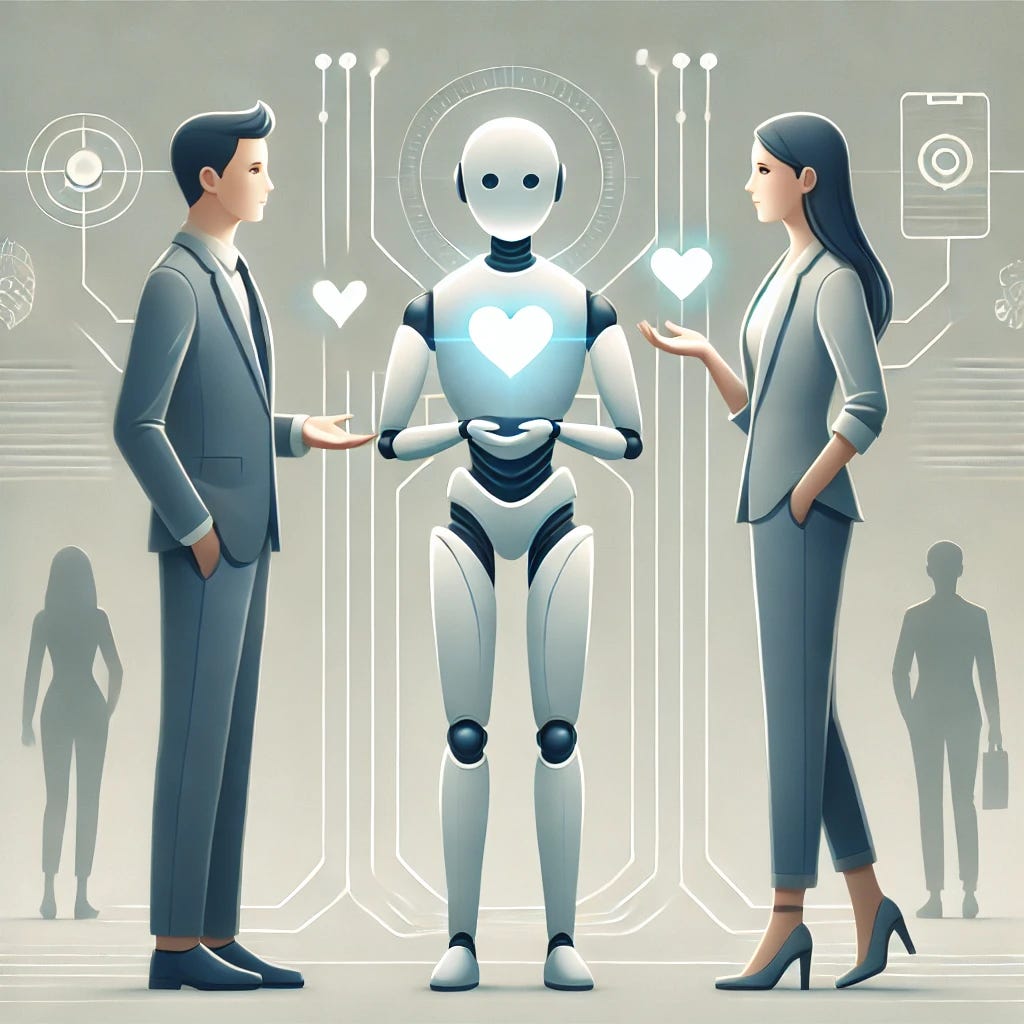Henrik Substack #5 - Exploring AI in Empathy, Business building and the Future of Jobs
Welcome to my inklings—random things I stumble upon in the pursuit of “interestingness.” Grab a coffee and dive in! I’ll send these whenever I’ve gathered ten thoughts worth sharing.
I also publish a podcast about AI, make dogs and their people happy, and help 10,000 entrepreneurs launch companies.
AI and Empathy: Can AI be a “translator” for human connection? Communication is often trickier than we think. A Scientific American study shows that various people interpret even a simple word like “penguin” differently. This disconnect reminds us that we often assume others share the same understanding as us—but they don’t. I’ve been exploring whether AI could bridge this gap, enhance empathy, and help people better understand one another. I would love to hear if anyone has found exciting examples of this. (Thanks to Jeremy Utley, Greg McKeown, and David McRaney for brainstorming on this).
Quick ChatGPT hack: Want to use real-time web data? Try the command
/search. Example: “/search Who is Henrik Werdelin?” This forces it to pull information from the web rather than rely on its built-in knowledge.The Barnum effect explains our fascination with vague but personal-sounding feedback. People often believe generic statements—like horoscopes or personality tests—are uniquely applicable to them. That’s the Barnum effect. It’s probably why some Reddit get excited when they ask ChatGPT for insights about themselves, only to receive surprisingly “accurate” but generic responses. It’s fascinating, but remember that unless you’ve given ChatGPT specific instructions or turned on “memory,” it doesn’t really store personalized data—more on this effect and how ChatGPT fits into it. Try it out by asking, “From all of our interactions, what is one thing that you can tell me about myself that I do not know about myself”
The Dunbar-Squared Hypothesis: Can narrowing models build better intimate small business-focused relationships? Nicholas Thorne and I are exploring whether AI agents could perform better than broad-based models like ChatGPT by developing a clear, focused perspective for specific user groups. These specialized AIs could build trust and intimacy within a smaller cohort—think a sommelier in France vs. one in Omaha, NE, experts for the right audiences but less helpful for others (and both better than generic advice from foundational models). We hypothesize that an AI agent can manage intimacy with up to 22.5k people (150²), based on the idea that humans can maintain close relationships with around 150 people. More to come on this.
I am looking for more examples of new products that do “Context-aware delivery of solutions.” These products evolve to provide solutions based on the specific context and needs of customers rather than being static offerings like apps, websites, or software. Think of headless agents that appear when needed. Please send any suggestions my way!
We’ve been talking about “learning as a product you can ship” for years at Prehype. It’s still surprising how often companies don’t document and share what they have learned from their experiments. It is refreshing to see companies like BARK (shoutout to Mikkel Holm) share their AI experimentation insights. Reframing learning as a tangible product is a great way to extract value—even when things go as planned.
“I wish I could clone myself!” Journalist Evan Ratliff did just that in a fantastic experiment showing the power of voice and AI. Check out his work customizing AI podcasts through tools like Bland AI and new features from ElevenLabs. Audio AI is seeing a lot of new cool stuff, like the ability to customize the podcasts that NoteBookLM can make about your content. We recently interviewed the founder of NoteBookLM AI on Beyond the Prompt—fascinating stuff!
AI won’t kill all jobs—just change them (maybe). Remember when self-service kiosks at McDonald's were seen as job killers? They shifted roles, allowing employees to focus more on customer experience and service. This echoes the impact of ATMs on bank tellers. A 2011 McKinsey study found that while the Internet eliminated 500,000 jobs in France, it created 1.2 million new ones—a net gain of 700,000 jobs. More on the future of work here.
My latest gear obsession is the Boox Palma e-reader. It’s the perfect hybrid of e-reader and smartphone, with a 6.1” E Ink screen and Android OS. I use it with my favorite apps, like Readwise Reader, The Economist, and Kindle. It’s great for reading, lasts a week on one charge, and helps me stay more focused and intentional.
Tell me what works and what doesn’t—drop me a line! You can reply to this newsletter, chat with me on Substack, or find me on LinkedIn.
I hope you find something useful in these inklings. If you do, feel free to share this newsletter:
Good vibes!






The Dunbar approach is really interesting, and seems promising in order to give people specific entry points and TRUST in the often blurry and vast world of AI